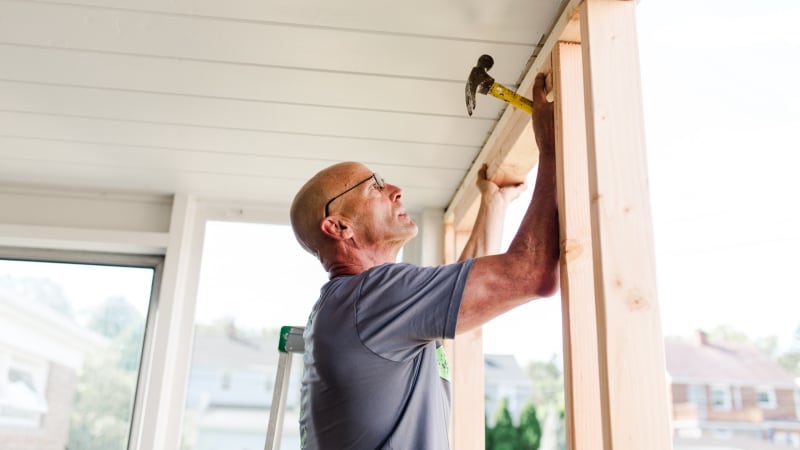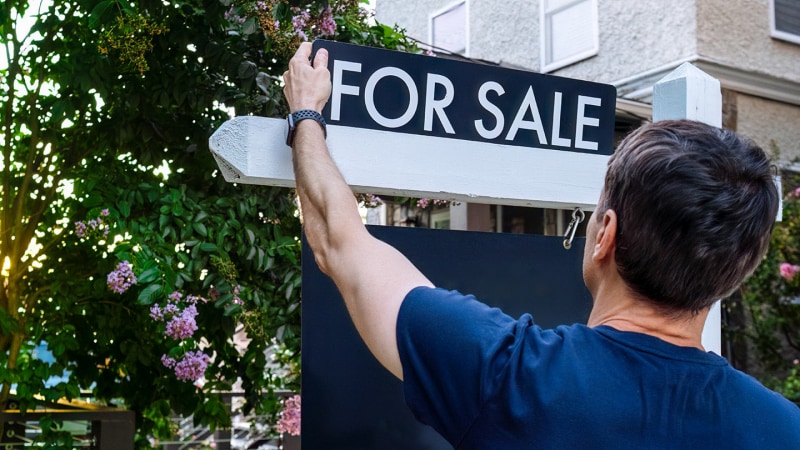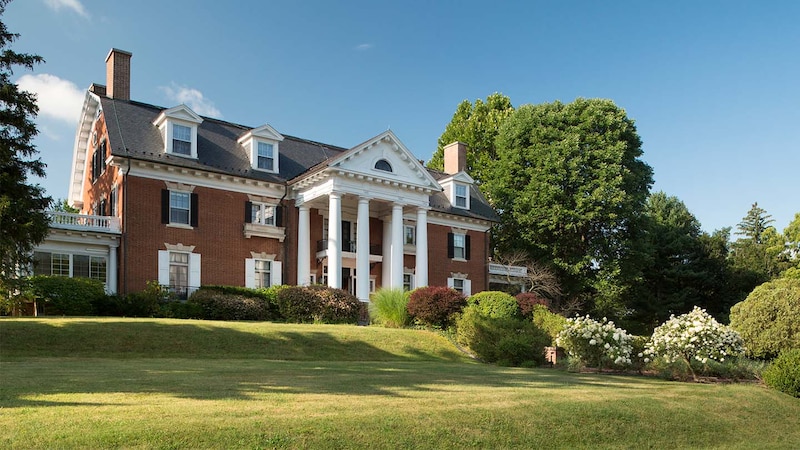What is homeowners insurance and why is it important?

If you find yourself wondering what homeowners insurance covers and why you need it, you're not alone. We're here to help explain what it is, and why you need it.
What is homeowners insurance?
Homeowners insurance provides financial protection when your home is accidentally damaged. Home insurance policies typically cover four key areas:
- The inside and outside of your home
- Loss of personal property due to theft
- Garages, sheds and other buildings on your property
- General liability related to a person's injury on your property
What does homeowners insurance cover?
Insurance policies cover repairs, restoration and replacement costs for items damaged due to events, including, but not limited to, fires, wind, including named storms, vandalism or smoke. Here’s a look at some key items covered by most policies:
- Your home's foundation, walls, roof and other structural elements
- Barns, tool sheds, fences and other outdoor structures on your property
- Appliances, electronics, furnishings and possessions damaged by a covered event
- Reimbursement for medical bills and legal expenses incurred due to an injury or accident on your property
- Additional living expenses, such as hotel costs and restaurant meals, you may face if you are temporarily unable to live in your home
It's always wise to read your policy carefully as many policies have limits on coverage. If you discover your policy doesn't cover a particular item, ask your insurance company about additional coverage.
What items aren't covered by most policies?
Knowing what's not covered is as important as knowing what is. In general, standard policies don't cover most types of damage caused by floods or earth movements. Damage due to neglect or poor maintenance is also excluded. Here are some items not covered by most policies:
- Flood damage
- Damage due to sump pump or sewer backups
- Earthquake damage
- Sinkhole damage
- Termite destruction
- Rodent damage
- Damage due to rot, rust or mold
- Food spoilage due to power failures
- Damage due to regular wear and tear
Depending on your policy, there might be other exclusions or coverage limits. For instance, if your boat is damaged or stolen from your home, many policies provide limited coverage. However, this coverage doesn't apply if your boat is stolen from a location other than your home. For more information about your insurance coverage options, speak to your insurance agent.
Actual cash value vs. replacement cost
As you compare policies and providers, you'll come across terms about reimbursement. The two most common terms are replacement cost and actual cash value. These terms refer to two popular methods insurance companies use to value insured property:
- Replacement cost coverage: A policy with this coverage enables you to replace your damaged property with similar materials and quality. You receive the full replacement cost if a covered item is damaged or stolen. Depreciation isn't factored into this coverage.
- Actual cash value: Actual cash value (ACV) is calculated by taking the replacement cost and subtracting the depreciation. Policies that have an actual cash value payout usually cost less to purchase. But the amount you receive for reimbursement may not be enough to replace damaged possessions.
Do I need homeowners insurance?
You need homeowners insurance to get a mortgage. Lenders require you to have homeowners insurance until your loan is paid off. This requirement is outlined in the terms of your mortgage. There are two main reasons why you need homeowners insurance to get a mortgage:
- To protect you. As a homeowner, you are covered if your home is damaged.
- To protect your lender. Insurance also protects your lender's financial interest in your property.
Be sure to ask your lender when to provide proof of insurance. While some lenders allow buyers time to secure home insurance, others may require you to have it before closing.
Mortgage insurance vs. homeowners insurance
If your down payment is less than 20% of the home's value, lenders may require you to pay mortgage insurance. Homeowners insurance and mortgage insurance differ in four key ways.
- 1. They protect different parties. Homeowners insurance protects two parties: you and your lender. Mortgage insurance, on the other hand, only protects your lender.
- 2. The reasons for coverage are unique. Homeowners insurance offers protection for damage or loss caused by events such as storms, fires and theft. Mortgage insurance protects your lender if you default on your mortgage payments. If you're no longer able to make your payments, mortgage insurance helps protect your lender from financial loss.
- 3. Lender requirements differ. Whereas homeowners insurance is a key requirement for all mortgage applicants, mortgage insurance isn't always required. If you put less than 20% down, your lender may require you to pay mortgage insurance.
- 4. Insurance maintenance requirements are different. You're required to maintain your homeowners insurance policy until you pay off your loan. But you might be able to cancel your mortgage insurance earlier than that if you meet certain requirements. Lenders may require you to show one or both of the following to cancel your mortgage insurance and reduce your payments:
- Pay down at least 22% of your home's value.
- Your mortgage insurance payments must be current.
Homeowners insurance vs. title insurance
Like homeowners insurance, title insurance protects both the buyer and the lender. But that's where the similarities end.
Homeowners insurance safeguards against events that could occur in the future. Title insurance protects against claims that may arise due to past events involving your home.
Title insurance covers events that most homeowners insurance policies don't. These events are often linked to a previous owner or flawed records. They're typically discovered during an examination of public records and long after they originally occurred. Here are some items covered by title insurance:
- Unpaid back taxes owed by a previous owner
- Incomplete or incorrect documents pertaining to your home
- Outstanding liens or lawsuits
- Renovations required to correct work done by a previous owner without the proper permits
- Unpaid bills issued by contractors who performed work for a previous owner
- Forged or fraudulent documents relating to your home
Do you need homeowners insurance if you have a home warranty?
A home warranty is a wise purchase and could save you a lot of money in repairs or replacement costs. But the scope of a home warranty is limited as it typically lasts for a certain period of time.
Home warranties usually cover problems and repairs related to aging appliances and plumbing. Unlike homeowners insurance, a home warranty won't include your home's physical structure or your personal belongings.
What if you don't have homeowners insurance?
If you don't have homeowners insurance, let your lender know right away. Your lender can also:
- Explain why your insurance information is needed to get a mortgage.
- Provide ways for you to send a copy of your policy declaration page.
- Set up an escrow account for your insurance payments.
- Explain how to access funds to repair your home (PDF) if damage occurs.
- Answer any other questions you have about insurance.
How do I get homeowners insurance?
Homeowners insurance protects both you and your lender. But sometimes policies aren’t always easy to understand. The best thing to do before you begin shopping for a policy is talk to an insurance agent.
An insurance agent can help you review policy options and find one that protects you and satisfies your lender requirements. With the guidance of an experienced advisor, you can find a policy that meets your needs and budget.



